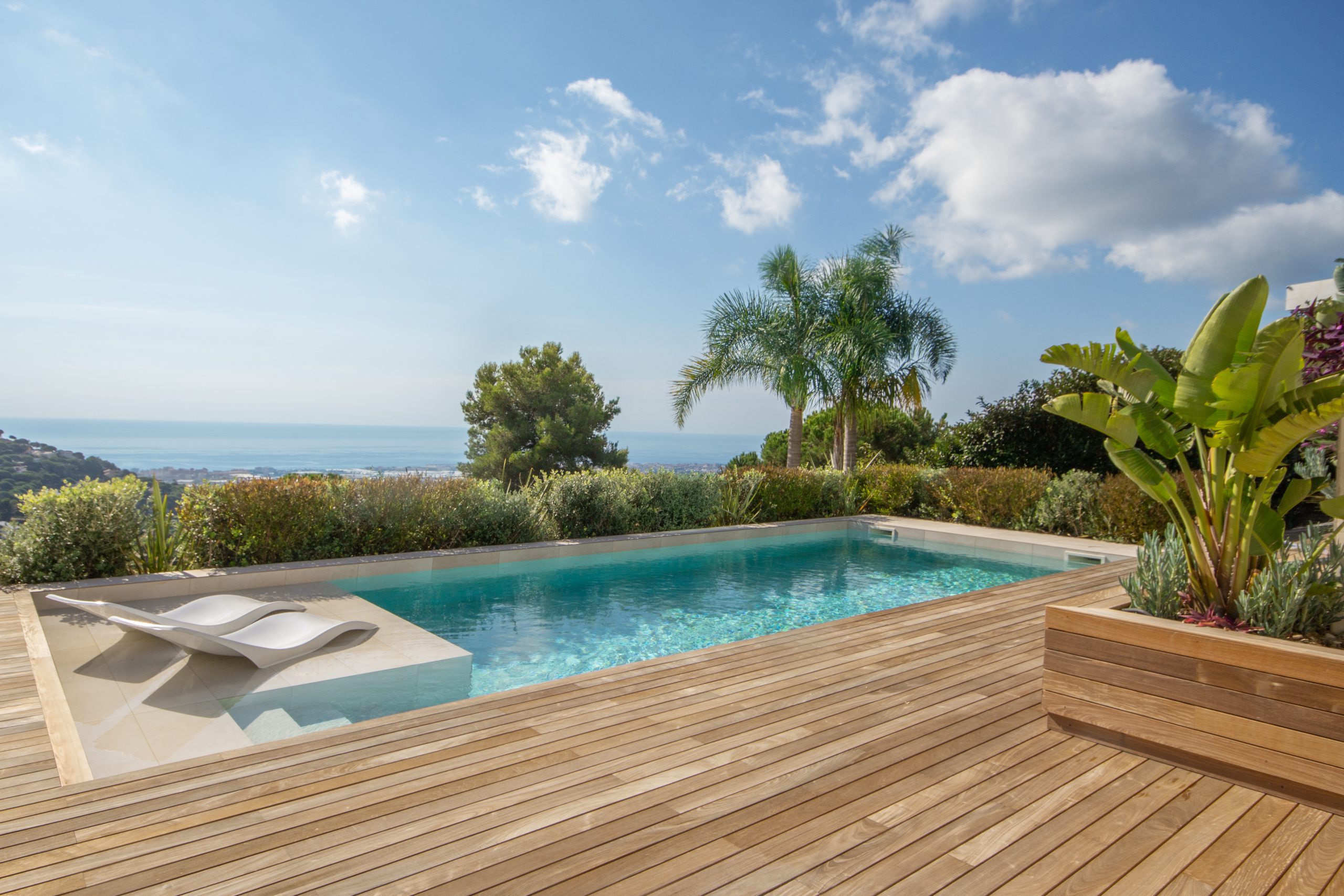Building swimming pools on private properties is very common thanks to the wide variety of options, from custom-built pools to prefabricated models, which are much faster, more economical and offer increasingly better results. However, there are important planning and administrative aspects to consider. Let’s take a look at them:
1. Buildability of the plot
The buildable area of a plot is the number of square meters that can be constructed. This can vary depending on the regulations of each municipality, as well as the building type permitted in different areas within that municipality. Therefore, it is highly advisable to consult the specific regulations for each case.
The square meters of constructed area that are counted for the purpose of calculating buildable area are those located above ground level. Anything built below ground level will not be considered when verifying the square meters (for example, a basement or a garage).
That said, we can confirm that an in-ground swimming pool will not affect the building allowance. However, an indoor swimming pool will be taken into account, as it includes a structure built above ground level (this will also depend on the opinion of the municipal technician who must report on this type of construction, since a lightweight, removable roof is not the same as a permanent roof, for example).
2. Distance to neighboring properties
Regarding the required distance from neighboring properties, it will also be necessary to consult the current municipal planning regulations, but note: this only applies to above-ground constructions. In other words, we can build an in-ground pool right up against the property line as long as it doesn’t extend beyond our property line. However, for indoor pools, municipal regulations must be respected, and the minimum separation (generally 3 to 5 meters) must be maintained.
3. Building license
A building license is the administrative authorization that must be obtained from the City Council before undertaking any construction or renovation work to ensure compliance with current municipal planning regulations. Obtaining this permit is always required, and the responsibility for and ownership of it lies with the developer (property owner), not the construction company.
There are mainly two types of building license:
-
- MAJOR WORKS LICENSE → For large-scale projects involving structural changes. A technical project prepared by a qualified professional (architect or engineer) will be an essential requirement for processing and approval by the City Council.
-
- MINOR WORKS LICENSE → For small-scale and less complex works that do not affect the structure or volume of the building. A description of the work or a cost estimate is usually required, but not a technical project signed by a qualified professional.
Building a swimming pool requires obtaining a major works license, as it involves considerable earthmoving, the construction of retaining walls, and associated installations.

4. Technical project
Having said all that, we come to the conclusion that for the construction of a swimming pool on our property (major work), we will need to hire a qualified professional (architect or engineer) to prepare the corresponding technical project (some swimming pool construction companies have their own technician, but it is not common).
During the works, the technician will verify that the technical and safety requirements foreseen in the project are met, that the appropriate materials are used, will ensure the proper execution of the works, and will make sure that the quantities executed and budgeted are certified to the client.
5. College visa
The College visa is an act of technical supervision carried out by a professional association for:
-
- Validate the identity and qualifications of the professional signing a project
- Verify formal correctness and compliance with applicable regulations
It is mandatory for building projects that require a technical project (according to the Building Regulations Act) and for final work certificates, as well as for demolition projects (without explosives) and other special cases involving high risk. Therefore, the visa will be necessary for the construction of a swimming pool.



